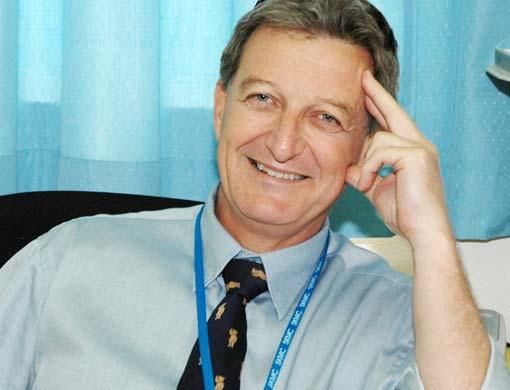Abu Dhabi: Doctors and athletes have warned body-builders against excessive intake of protein supplements to help gain bulk, saying it poses a major health risk.
Consuming supplements over a long period is dangerous and athletes need to know when to stop taking them," said Amjad Hassan Jarrar of the Department of Nutrition and Health in the College of Food Agriculture, UAE University.
Dr Alexander Abraham, Orthopedic Surgeon at Lifeline Hospital, said people in the UAE know about the problems involved with taking certain supplements but are willing to take the risk for quick results.
The consumption of amino acids is acceptable if they are approved by a reputed company and the FDA, said Dr Abraham. "People take a shortcut by consuming certain supplements that can be harmful," he said.
One of Dr Abraham's patients, an Emirati in his mid-20s, is currently suffering from steroid abuse. It has resulted in major spinal problems. "The patient built up bulk on the chest and abdomen area and ignored the back and leg muscles," he said, and that there was no proper supervision at his fitness centre.
He said that most bodybuilders have large hearts and that oxygen does not get to where it is supposed to and the muscles become exhausted because of poor blood supply. "Your heart is trying to make up for the fast bulking up which it cannot cope with," said Abraham.
"There will always be people who wish to take shortcuts. Good nutrition coupled with regular, intense exercise programmes build the best and most enduring athletes," said Dr Steward R. Graham, Senior Consultant Rheumatologist, Department of Medicine, Shaikh Khalifa Medical City.
There are also cosmetic enhancers that are designed to shrink the subcutaneous fat particularly for a bodybuilding competition. This allows better delineation of the underlying muscle to improve competition scores. "Diuretics are a good example and can cause major fluid and electrolyte disturbance, that may be fatal," said Dr Graham.
Enhancers
Energy enhancers are also famous for providing the user with a boost because they contain caffeine, various forms of pseudo-ephedrine compounds or ginseng, glucuronolactone and taurine. These agents become toxic in higher doses and may produce tremors, cardiac arrhythmias, hypertension and convulsions. They have effects similar to those of amphetamines because they use the same metabolic pathways.
"In areas where there is close scrutiny of performance most of those who use the nutritional supplements do so with close medical and biophysical supervision. The supplements/diet/training schedules are closely measured and each change is only justified by measurable and sustained improvements in performance," said Graham.
Several groups of supplements include nutritional compounds like protein, carbohydrate, amino acids, minerals and vitamins. Taken in large quantities, many of these can become toxic to the liver, muscles and kidneys.
Ahmad Hussain, 26 years, is a personal trainer at the Officers Health Club. He has won first prize in the Fujairah International Body Building Competition. He won twice in the Emirates Classic Bodybuilding contest and took first place at the Dubai World Trade Centre Competition.
Hussain weighs 120 kg and is 1 metre 74 centimetres tall. He has been exercising daily for 10 years and takes the correct supplement amounts. "I am against taking them for building bulk. Exercising, a proper diet and supplements in accordance with the person's body type, weight and height is an ideal plan," he said.
"Most bodybuilders in the gym ask for supplements and we give them to them after making sure it suits their body's chemistry and that they are following a regular exercise and diet plan," said Sameh Saeed Abd Al Gany, senior trainer at the World Gym.
Mahmoud Mahadeen, 31, a lawyer, took supplements six years ago to gain bulk. "I wanted muscles as soon as possible, but ate healthily, exercised properly and consumed supplements after consultation from a gym expert."













